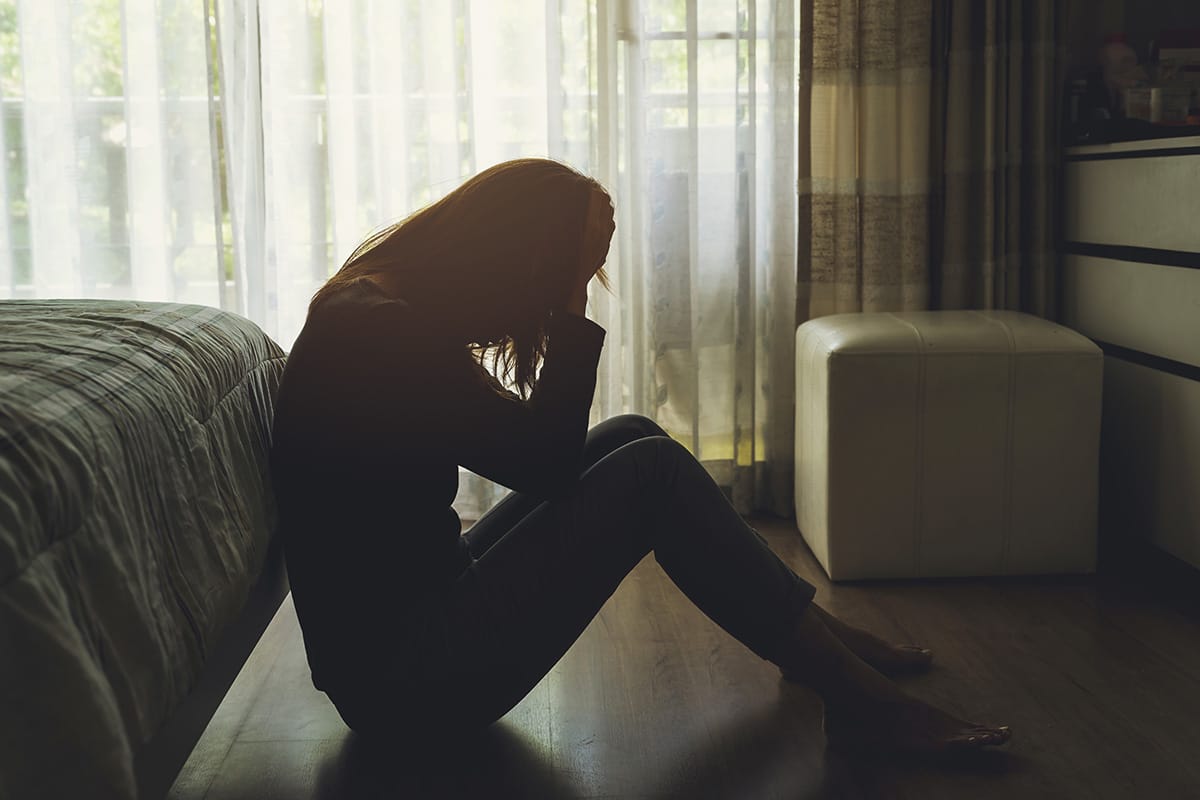Most people think of the effects of anxiety as divorced from their body’s physical health. But the truth is physical and mental health are inextricably connected. Changes to your physical health will affect your mental health, and changes to your mental health will affect your physical health.
Everyone experiences anxiety occasionally, but extended bouts with chronic anxiety can have serious consequences for your body. If you feel that your quality of life is suffering from anxiety, consider learning more about an anxiety treatment program. Qualified clinical professionals are prepared to treat chronic anxiety with a wide array of evidence-based practices.
The Effects of Anxiety on the Body
Anxiety is a very normal thing to experience, and for most people, their anxiety is manageable and does not negatively affect their life. These people experience anxiety as a short-term flight-or-fight response. In these cases, anxiety will increase your breathing and heart rate, your muscles will begin to tense, you will begin to sweat, and maybe even feel lightheaded or nauseous. These reactions are natural and harmless.
However, excessive or persistent anxiety could be an indicator of an anxiety disorder. Your body isn’t meant to always be on alert. Being constantly in that fight-or-flight state can have serious negative effects on your body. A few of these anxiety side effects include:
- Respiratory problems – Anxiety is often accompanied by short, shallow, and rapid breathing. When spending long periods in a state of anxiety, conditions like asthma or chronic obstructive pulmonary disease (COPD) can be exacerbated, sometimes even requiring hospitalization.
- Weight gain – One of the most common anxiety side effects is weight gain. When you are regularly anxious, your body produces hormones that can make you crave comfort foods and sweets. Additionally, the increased cortisol levels caused by anxiety can cause fat to build up.
- Gastrointestinal disorders –- Anxiety can lead to gastrointestinal distress, such as stomachaches, nausea, diarrhea, irritable bowel syndrome, or ulcers.
- Weakened immune response – Chronic anxiety can mean that your body never gets the signal to turn off the fight-or-flight response. This constant flood of adrenaline can weaken your immune system and leave you vulnerable to communicable diseases.
- Heart disease – Your heart works overtime while you are anxious. When your body is constantly under stress, it begins to weaken. Chronic anxiety can lead to high blood pressure, heart disease, or a heart attack.
- Muscle Tension – Under constant stress and strain, muscles may cramp, ache, and experience soreness and pain. This can even contribute to chronic pain conditions such as fibromyalgia.
How an Anxiety Treatment Program Can Help
In an anxiety treatment program, you will receive personalized care centered around your experiences with anxiety and dedicated to addressing the root causes of your anxiety. Though there is no outright cure for anxiety, therapy and medication are the most reliable treatments and are effective in relieving the symptoms of anxiety. Some of the therapies offered at mental health treatment centers include:
- Recreational therapy
- Expressive therapy
- Group therapy
- Trauma-focused therapy
- Motivational interviewing
- Family therapy
- Cognitive-behavioral therapy
These evidence-based practices will teach you skills to reduce anxiety symptoms as well as coping methods for when symptoms arise. An anxiety treatment program offers you a safe and welcoming environment to learn more about your anxiety and get on the path to recovery.
Selecting the Right Anxiety Treatment Program
When choosing an anxiety treatment program, it’s important to consider the type of therapy offered. Cognitive-behavioral therapy (CBT) is a common and effective approach that helps individuals identify and reframe negative thought patterns. Additionally, mindfulness-based therapies can provide tools to manage anxiety symptoms in the moment. Understanding the therapy techniques used can guide you towards a program that aligns with your needs and preferences.
Another crucial factor to consider is the qualifications of the mental health professionals leading the program. Look for licensed therapists with experience in treating anxiety disorders. A multidisciplinary team that includes psychologists, psychiatrists, and social workers can provide a comprehensive approach to addressing anxiety from different angles. Ensuring that the professionals are well-trained and experienced can increase the likelihood of a successful treatment outcome.
Find Relief From the Effects of Anxiety
If anxiety is taking a physical toll on you or a loved one, you are not alone. Anxiety treatment is available to you. You can rebuild your life and your body with the help of our staff of clinical and psychological professionals. To learn more about how you can find relief from anxiety and anxiety treatment options, reach out to a mental health treatment center today.

